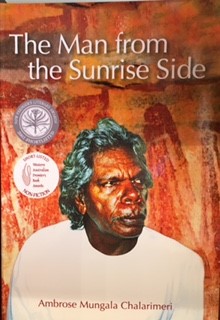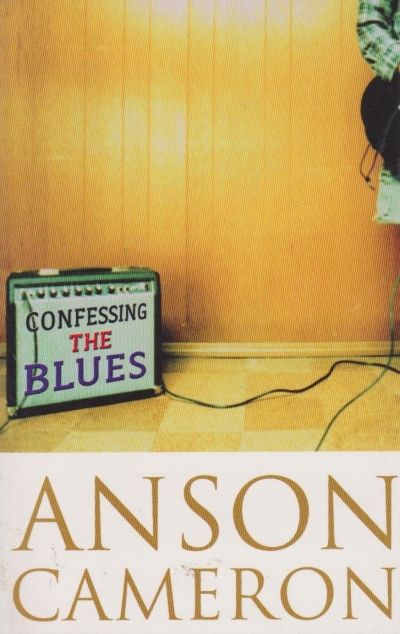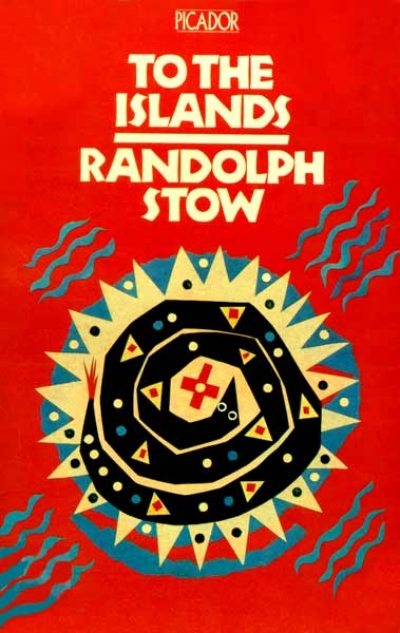Fiction
The Man From the Sunrise Side by Ambrose Mungala Chalarimeri & The Mish by Robert Lowe
What is the significance of these stories told by apparently unremarkable people? One thread lies in recording times not quite past, but still enduring amidst vast changes. Their common quality is stoicism, an ability to keep going, in the face of monumental shifts, not just the technological ones that we have all faced in the last century, but huge transformations to cultural life.
... (read more)Bearded Ladies/Dreamhouse by Kate Grenville & Joan Makes History by Kate Grenville
Being out of print is like moving back in with your parents – it’s not usually a sign that things are on the up. But fortune’s wheel turns with scant regard for merit or effort, so it must be a relief for writers when their publishers decide to ‘celebrate their continuing contribution to Australian literature’ with a re-release of their back catalogue.
... (read more)Confessing the Blues by Anson Cameron & Saigon Tea by Graham Reilly
Comedy, Angela Carter once quipped, is tragedy that happens to other people. Laughter is both an expression of our hard-bitten knowledge of the random cruelty of a universe that stubbornly resists our attempts to control it and an act of defiance in the face of that cruelty. Or, to put it in simpler terms, if you didn’t laugh, you’d cry.
... (read more)Writing novels, he’s Tom Keneally. Works of history – such as The Great Shame (1998) about the Irish diaspora to the USA and Australian in the nineteenth century, and this year’s American Scoundrel, concerned with the adventures of politician, general and amorist Dan Sickles – are by Thomas Keneally. There is more doubling in Keneally’s most recent novel, for he uses two titles. In this country, we have An Angel in Australia; in Britain, The Office of Innocence. Each suggests a different line of approach to a novel that seems in some ways old-fashioned, so instinct is it with his earlier work. By the way, Keneally’s novel count is now twenty-six, including two under the pseudonym ‘William Coyle’.
... (read more)To the Islands by Randolph Stow & Tourmaline by Randolph Stow
Before the age of thirty, Randolph Stow had published five novels and a prize-winning collection of poetry. In Australia, only Kenneth Mackenzie, another Sandgroper, had made a similar youthful impact. Mackenzie’s first book, The Young Desire It, was published in 1937, though I believe drafted some time before that. Stow’s The Haunted Land (1956) was written when he was only seventeen. When another precocious young Western Australian, Tim Winton, published his first novel, he was painfully conscious of these precursors. This was crucial for Winton, because both Mackenzie and Stow were to have troubled creative lives: Mackenzie died relatively young, his later novels disadvantaged by the youthful brilliance of his first. Randolph Stow, after his three initial successes, has published only five further novels, two collections of poems and a book for children. It has been a career with long silences.
... (read more)Halfway through Matthew Flinders’ Cat, the protagonist admits that, when writing, he finds it ‘almost impossible to leave out what others might think of as superfluous detail. It was, he knew, self-indulgence.’ Is this a moment of self-directed irony on Bryce Courtenay’s part, or a case of the pot calling the kettle black? This novel brims with ‘superfluous detail’, and there is little attempt to curb the flow of information.
... (read more)Set beyond the pale of white settlement, Sarah Hay’s Skins is a compelling and often violent story of an Englishwoman shipwrecked off the southern coast of Western Australia in 1835. Winner of the 2002 Australian/Vogel Literary Award, it is a powerful evocation of a time and place rarely featured in Australian literary fiction.
... (read more)Walking Naked by Alyssa Brugman & The Barrumbi Kids by Leonie Norrington
For several years, I have bemoaned the dearth of substantial, challenging Australian novels for ‘middle years’ readers. During a recent stint working in a specialist children’s bookshop, I was frequently asked by parents of these readers – upper primary, lower secondary – for ‘books that will last longer than an afternoon’. I was hard-pressed to find many recent Australian titles that would fit the bill. Two new novels by first-time writers aiming both to entertain and challenge their audience with complex yet accessible stories, concepts and language go a small way towards filling this gap.
... (read more)The setting is a dirty Blakean London, in the new millennium, where bicycles that cannot be unchained are bent and broken instead. Our ingénue, Jas, an Australian expatriate, tries to make her way as a French translator in the world of publishing. It’s a struggle. Jas’s literary antecedents may be traced back to Miles Franklin’s My Brilliant Career. At the turn of the last century, Sybylla Melvyn was sure of one thing: she wanted her freedom. To the eternal frustration of Franklin’s readers, Sybylla rejected the inestimably eligible Harold Beecham, even though he offered her a cartload of writing equipment, in preference for a life of penurious independence. Throughout the twentieth century, the literary tradition of the female quest for happiness beyond the constraints of colonial boundaries persisted. In Christina Stead’s For Love Alone, Teresa Hawkins embarks on a gruelling love affair in London. She is followed by Caro Bell in Shirley Hazzard’s Transit of Venus, Zoe Delighty in Stephanie Dowrick’s Running Backwards over Sand, and Lark Watter in Glenda Adams’s Dancing on Coral. Dancing or running, courageous young women must symbolically break their parochial chains in order to pursue the quest.
... (read more)A couple of years ago, confined to bed for weeks with a bad case of chicken pox, I was surprised to find that all I wanted to read were chronicles of illness. A Better Woman (childbirth-induced fistula), The Diving Bell and the Butterfly (shut-in syndrome), A Match to the Heart (heart failure after being struck by lightning), My Year Off (stroke) – I devoured them avidly. This was more than the egotism of the ill, I hope, although certainly a part of the enjoyment lay in seeing the fact of sickness given its own exclusive literary space. But I suspect my enjoyment had something more to do with watching those authors piece themselves back together in language. So physically altered that I could hardly recognise myself in the mirror, I took a greater pleasure than usual in the mysterious alchemy of word and flesh.
... (read more)









